Institute For Software Integrated Systems
-

NSF grant to fund AI-driven research addressing unauthorized road closures in Nashville
Road closures are a pain—and sometimes they’re not even supposed to be happening. A project by senior research scientist Ayan Mukhopadhyay is working to develop a system—SENTRY—that uses AI to help city inspectors find and address unauthorized road closures in Nashville. “The system has the potential to save millions in unpaid permit fees, reduce external inspection costs and minimize disruptions for residents, commuters and local businesses,” Mukhopadhyay said. His research is supported by a $697,000 grant that's part of NSF's CIVIC Innovation Challenge. Read MoreOct 10, 2025
-

Software coders hate in-person interruptions, but physiological stress measures tell a different story
Like anyone, it takes time for coders to reengage in their work, meaning interruptions from bosses, co-workers, and email and messaging notifications can lead to a loss of focus, decreased productivity, increased stress, and a longer time to complete tasks. But according to a new award-winning study by researchers in Vanderbilt’s Institute for Software Integrated Systems, not all interruptions are created equal. Read MoreMay 9, 2025
-

Heard Libraries’ Digital Lab awards 2025 seed grants to trio of projects with AI focus
Generative AI will play a key role in three new campus projects being developed thanks to early-stage funding from the Jean and Alexander Heard Libraries’ Digital Lab. The Digital Lab’s 2025 seed grant projects will be celebrated in a public showcase this fall. Read MoreApr 30, 2025
-
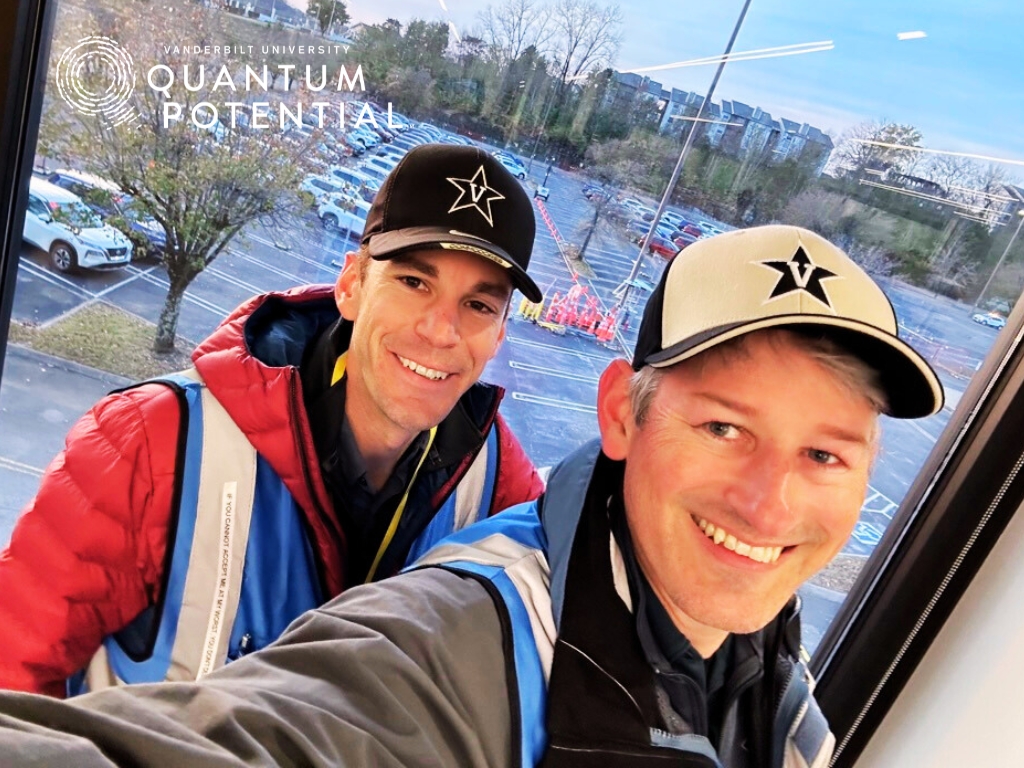
Friendship fuels innovation: engineering duo’s AI project paves the way for safer highways
Learn about the path that brought dynamic engineering duo Dan Work and Jonathan Sprinkle together and how they're using AI to prevent traffic jams and make highways safer. Read MoreFeb 26, 2025
-
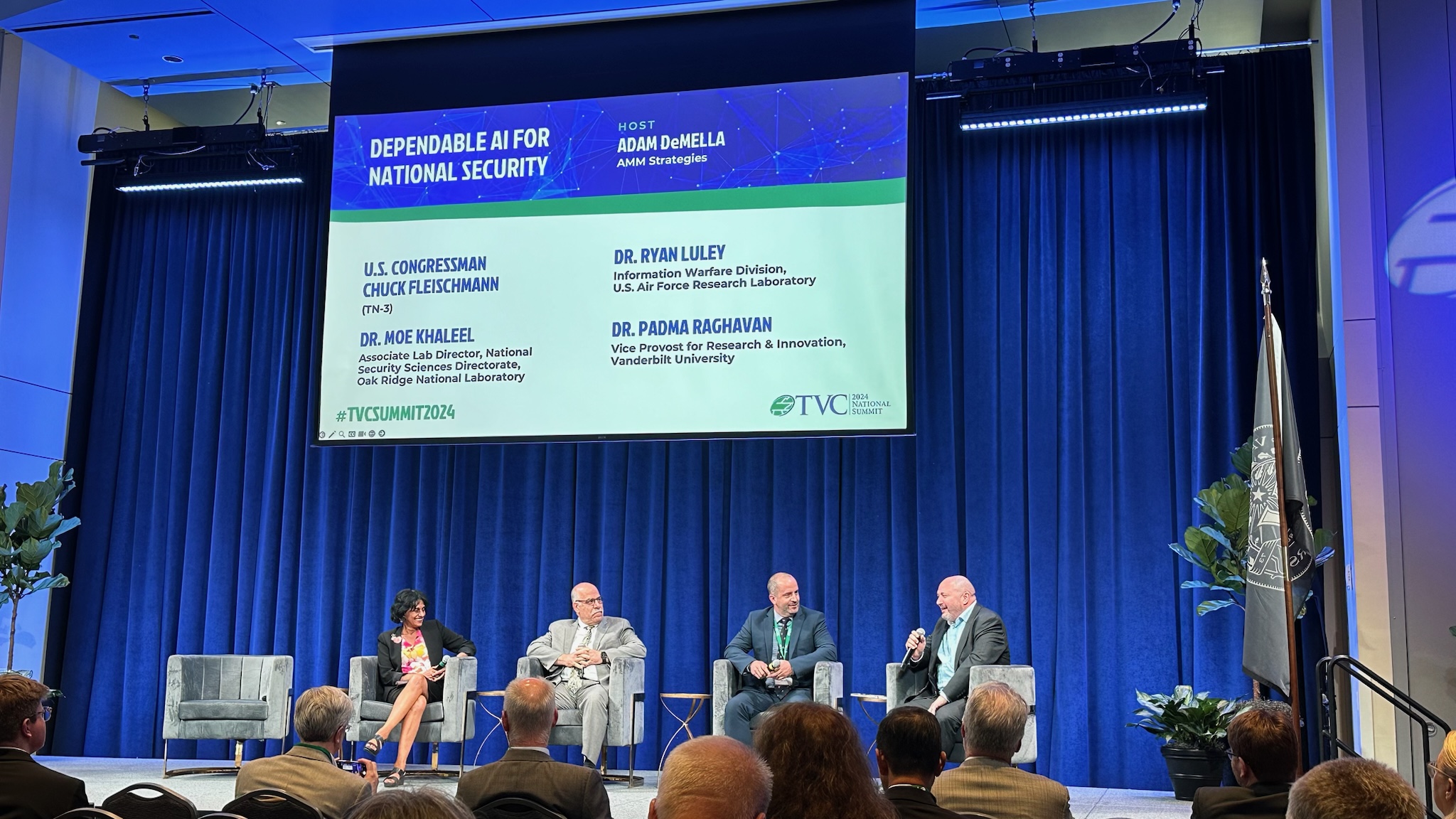
Tennessee institutions partner to develop dependable AI for national security applications
Vanderbilt University and the Department of Energy’s Oak Ridge National Laboratory announced a partnership to develop training, testing and evaluation methods that will accelerate the Department of Defense’s adoption of AI-based systems in operational environments. Read MoreMay 30, 2024
-

Vanderbilt researchers receive $2 million ARPA-H contract to improve software security in medical devices
Vanderbilt Department of Computer Science researchers Kevin Leach and James Weimer have won a $2 million award from the Advanced Research Projects Agency for Health to develop technology aimed at improving software security in medical devices like insulin pumps, pacemakers and stroke predictors. This is the first award Vanderbilt has received from ARPA-H, an agency within the National Institutes of Health with a mission to support “high-impact” solutions for pressing health care needs. Read MoreMay 20, 2024
-

U.S. Senate confirms Schmidt to lead operational testing and evaluation for the Department of Defense
Douglas Schmidt, Cornelius Vanderbilt Professor of Computer Science, has been confirmed to become Director of Operational Test and Evaluation for the Department of Defense following a full vote by the U.S. Senate on Feb. 29, 2024. Read MoreMar 6, 2024
-
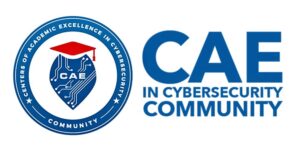
Vanderbilt achieves NSA designation as a Center of Academic Excellence in Cyber Research
The U.S. National Security Agency (NSA) has designated Vanderbilt University as a Center of Academic Excellence in Cyber Research, positioning the university as a premier institution for cyber-related education and innovation. Read MoreJan 24, 2024
-

Vanderbilt team leads $6.89 million DARPA grant to train cyber agents against attacks
Daniel Balasubramanian, a senior research scientist at Vanderbilt’s Institute for Software Integrated Systems, will lead a four-year $6.89 million grant from the Defense Advanced Research Projects Agency to create realistic network environments used to train cyber agents to counter advanced and persistent cyber threats. Read MoreDec 14, 2023
-
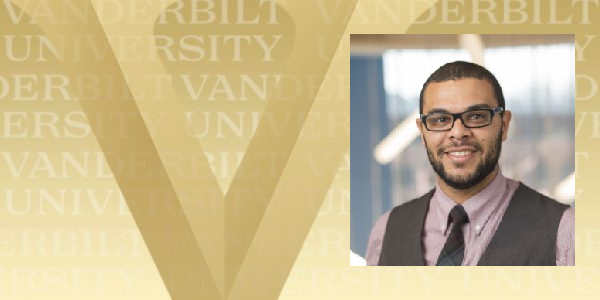
NIH grant supports wearable technology system to improve recovery from leg fractures
Karl Zelik is using wearable technology to explore better patient recovery methods from shinbone fractures and the surgeries required to repair them. The research team, including Peter Volgyesi, has received $2.7 million from the National Institutes of Health. Read MoreNov 21, 2023
-
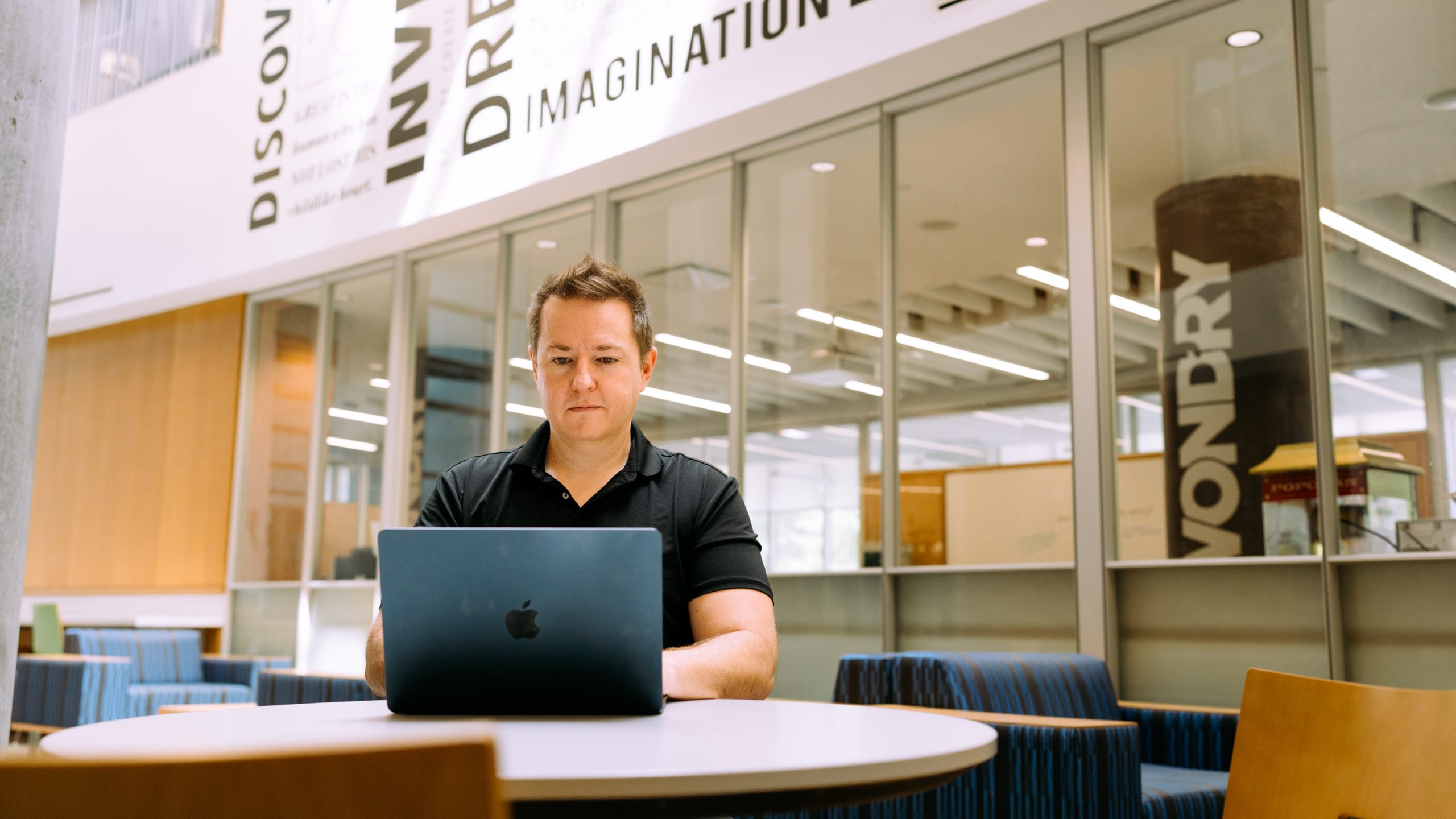
Jules White appointed to senior advisor role in Office of the Chancellor
Distinguished computer scientist Jules White has been named senior advisor to Chancellor Daniel Diermeier for generative AI in education and enterprise solutions. His appointment builds on Vanderbilt’s growing reputation as a world leader in innovation within the generative AI field. Read MoreNov 16, 2023
-

Interdisciplinary team develops open-access computer programming course for high school teachers
A modular, open-access curriculum created at Vanderbilt that’s designed to expand the ability of high school teachers to use technology in learning offers an engaging introduction to advanced topics that are currently accessible only to computer science majors in college. Read MoreNov 8, 2023
-

Artificial intelligence researchers win international “social good” award for tool designed to optimize childhood vaccinations in Nigeria
A team of Vanderbilt computer scientists, working in collaboration with Google Research and a global aid organization, HelpMum, received top honors in the “social good” category for a paper describing a new tool designed to optimize childhood health and wellness in Nigeria at the 2022 International Joint Conferences on Artificial Intelligence Organization (IJCAI). Institute... Read MoreJul 29, 2022
-

$2.5 million NASA project will develop and test safety management for ‘air taxis’
Multi-university team tackles safety systems for autonomous eVTOLs Vanderbilt engineers are part of a NASA-funded, multi-institution effort to develop safety systems for a mode of transportation that doesn’t exist yet—small, commercial, autonomous planes that move people by air between locations in large, crowded cities. The task is a formidable one with machine learning at its... Read MoreJun 28, 2021
-

$2.5 million NASA project will develop and test safety management for ‘air taxis’
Multi-university team tackles safety systems for autonomous eVTOLs Vanderbilt engineers are part of a NASA-funded, multi-institution effort to develop safety systems for a mode of transportation that doesn’t exist yet—small, commercial, autonomous planes that move people by air between locations in large, crowded cities. The task is a formidable one with machine learning at its... Read MoreJun 28, 2021
-

Vanderbilt trans-institutional team shows how next-gen wearable sensor algorithms powered by machine learning could be key to preventing injuries that sideline runners
An interdisciplinary team of researchers led by Karl Zelik explores how wearable sensor technology can monitor bone stress in runners, developing a new multi-sensor algorithm that could save runners from months of pain and recovery time. Read MoreOct 28, 2020
-

Rewriting the evolution of complex software systems
All software is not created equal. At one end are apps on a smartphone and consumer-facing programs for which periodic updates to fix bugs and security issues are routine, like replacing an air conditioning filter or getting an annual flu shot. At the other end are large, complex software systems such as software used in... Read MoreAug 20, 2020
-

Software suite expedites reproducible computer simulations
Science moves forward when researchers verify their and others' results. Read MoreJul 8, 2020
-

Building social values into the Internet of Things
New project aims to build social norms, policies and values into the basic architecture of the Internet of Things. Read MoreOct 10, 2017